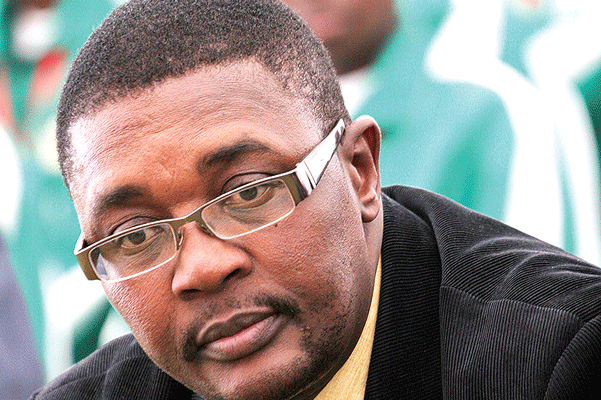
In an election, one needs both hope and audacity, according to France’s outgoing President Francois Hollande.
BY NDAMU SANDU

Although he is full of hope and is indeed audacious, Tourism and Hospitality Industry minister, Walter Mzembi carries on his shoulders an extra-weight – the hopes of a continent that has not been represented at the helm of the UN World Tourism Organisation (UNWTO) since the inaugural general assembly of the tourism agency in 1975.
Mzembi will fight it out with five other candidates — Márcio Favilla (Brazil), Jaime Alberto Cabal Sanclemente (Colombia), Zurab Pololikashvili (Georgia), Young-shim Dho (South Korea) and Alain St. Ange from Seychelles for the chair of the organisation from 2018 to 2021.
The winning candidate will replace Jordanian Taleb Rifai who is leaving at the end of the year after eight years at the helm.
Mzembi was endorsed by Sadc and the African Union (AU) for the top post and has been on an intensive diplomatic offensive to garner support. The continental vote appears to have been shaken by the unexpected entrance into the race by Seychelles former Tourism minister St Ange, who announced interest in the job in December against the AU’s resolution to field one candidate as a way to increase the continent’s chances.
Mzembi’s AU endorsement was penned at a heads of states meeting in Kigali, Rwanda after a similar endorsement by Sadc. Ironically, Seychelles also endorsed Mzembi’s candidature at Sadc and AU.
Last month, the African Union Commission deputy chairperson Kwesi Quartey urged Africa to vote as one united bloc for a candidate endorsed by the continent.
- Chamisa under fire over US$120K donation
- Mavhunga puts DeMbare into Chibuku quarterfinals
- Pension funds bet on Cabora Bassa oilfields
- Councils defy govt fire tender directive
Keep Reading
“It is therefore imperative for us to maintain unity in the continent, and to practically demonstrate this unity by putting our support singularly, to the candidates endorsed for the positions within the international system. I call upon all of us, especially the 10 votes Africa enjoys, to vote as one united bloc to increase our chances of winning, and we must win this one for the first time in history,” Quartey said.
“We are also hoping for the support of the Asian and Latin voters and we continue to call for their support.”
The voters in the election are 33 executive council members distributed as follows: Africa (10), Europe (10), Middle East (3), South Asia (2), Americas (5) and East Asia (3).
A candidate requires 17 votes to claim the post pending approval by two thirds majority at the general assembly meeting in China in September. If no candidate garners 17 votes in the first round, the top two candidates will go for the second round. This means the votes that had been garnered by the other four candidates would be up for grabs.
Mzembi alluded to the serious competition out there, saying “some of it far better resourced than our own campaign”, but said his vision and experience would prevail.
“But, my candidature, my vision, the broad professional experience I have garnered throughout my long service in tourism and in government more broadly, and the passion and energy I know I can bring to the table, stand me apart – very considerably so in some cases – from other contenders for this post,” he said last week, adding that he was the right African for the job.
Mzembi said he was destined to win, describing as a “sideshow” the entry of another African candidate into the race.
“Sideshows will always be there and we budgeted for them,” he said, adding that he was confident that African voters would stick together.











